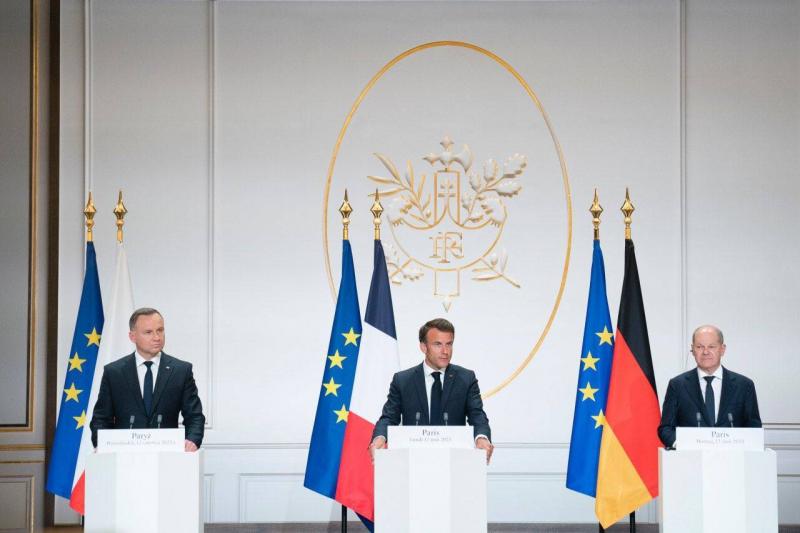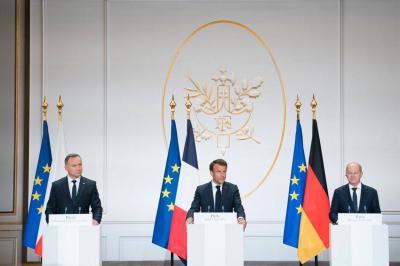French President Emmanuel Macron stated on Monday that the long-anticipated Ukrainian offensive against occupying Russian forces has begun, promising to provide more military assistance to the Kyiv government. In a press conference following a meeting with Polish President Andrzej Duda and German Chancellor Olaf Scholz at a triad summit of the so-called Weimar Triangle, Macron said, "We have done everything to help her (Ukraine)."
Macron, who recently announced that he spoke with Ukrainian President Volodymyr Zelensky, who confirmed the start of the counteroffensive, stated, "We have intensified the delivery of ammunition, weapons, and armored vehicles... and we will continue to (provide assistance) in the coming days and weeks." In response to a question about whether Germany agrees that Ukraine needs to receive security guarantees at the NATO summit in July, Chancellor Scholz said, "It is clear that we need that and we need it in a very concrete way."
Ukraine announced today that it has achieved new gains in the initial phase of the counteroffensive, stating that its forces have reclaimed seven villages from Russian troops along a front that stretches approximately 100 kilometers in southeastern Ukraine. The purpose of the triad meeting in Paris was to send a signal of unity between Eastern and Western Europe as Warsaw played a significant logistical and diplomatic role in assisting Ukraine while often criticizing German and French leaders for their inaction.
Macron stated that the meeting demonstrates there is no division between "old" and "new" Europe, a distinction previously raised by the United States when Eastern European countries refused to support France and Germany regarding the war in Iraq nearly 20 years ago. However, divisions emerged during a brief question-and-answer session with journalists. Both Macron and Scholz expressed their support for the migration agreement reached by EU ministers last week, which requires EU countries unwilling to accept refugees to provide financial contributions to their peers in hosting countries. However, the Polish president expressed skepticism, adding, "We have welcomed those who needed help in Poland... we helped, and to be honest, we did not receive any assistance, especially from EU institutions."




